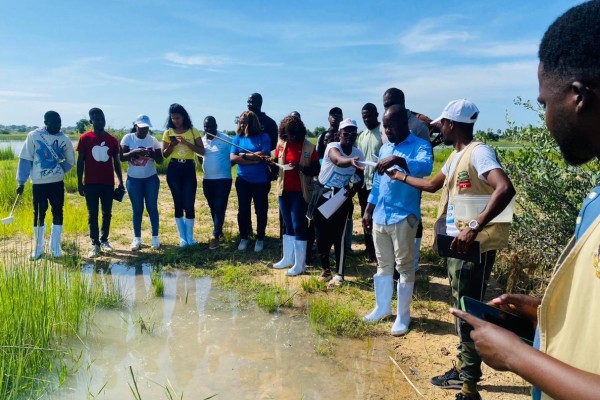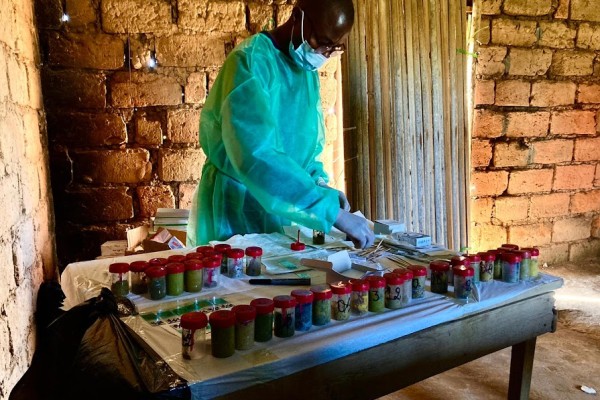Monitoring and evaluation enable MENTOR to assess the impact, effectiveness and efficiency of interventions, while learning from programmatic implementation that help make informed decisions to improve health.
We work closely with local health authorities and partners to develop and improve disease surveillance systems. These systems:
- enable the timely detection, reporting, and tracking of cases
- help monitor disease trends
- identify transmission hotspots
- evaluate the impact of interventions.
This support is crucial at the onset of emergencies where systems need to be quickly set up using simple tools. In post emergency settings sustainable surveillance systems help identify trends, predict outbreaks and support disease elimination efforts.
MENTOR carries out regular monitoring and impact surveys to assess the effectiveness of interventions and measure progress towards programme objectives. These surveys include quantitative and qualitative data collection to understand the full impact of activities.
Our expertise has developed to include rapid assessments, knowledge, attitudes and practice (KAP) surveys, parasitological surveys, systems focused assessments and coverage evaluation surveys.
We have also supported health authorities to develop, improve and assess health information systems. These systems collect, store, analyse and visualise data to guide decision making. Standardising data collection tools and protocols help improve data quality and comparisons across different locations and time periods. An example of this work is in Angola, where MENTOR supports the National Malaria Control Programme to improve surveillance in high and low transmission setting, helping malaria control and elimination efforts.
MENTOR also incorporates learning strategies throughout its implementations to identify what can be improved and the best strategies to improve implementation. The integration of learning through adaptative management approaches allows us to continually improve our implementation to ensure gradual and sustained increments of results achieved.
Operational research
Our operational research programme identifies strategies, evaluates programme outcomes and contributes to wider public health knowledge. Research focusses mainly on vector control, disease management, strengthening health systems and community engagement.
Operational research is used to explore and evaluate new and innovative tools to improve vector control. We assess the efficacy and feasibility of emerging vector control technologies, such as novel insecticide formulations, spatial repellents and control methods that target specific species.
By evaluating the performance of these tools in different settings, we aim to establish effective and sustainable approaches that reduce diseases. We also contribute to improving knowledge on the effectiveness of these tools in humanitarian context where tools are usually not tested. For example, in Syria, Yemen and Nigeria.
The effective management of cases is crucial for improving health outcomes. Operational research evaluates and enhances case management practices for various diseases, including neglected tropical diseases and malaria.
Studies assess the impact of different training and supervision practices, healthcare seeking behaviours and treatment protocols. Research findings inform evidence-based guidelines and protocols for healthcare providers, which leads to improved patient care and better health outcomes.
Community health workers play a vital role in delivering healthcare services and strengthening community engagement. Operational research helps us understand the factors that influence engagement with community health workers and acceptance within communities.
By exploring the challenges and opportunities associated with community health worker programmes, we can develop strategies to improve their effectiveness and sustainability.
Research aims to improve recruitment, training, supervision and retention, leading to increased community trust and acceptance of community health workers as key healthcare providers.


